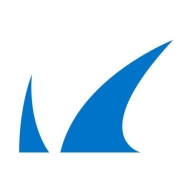

Barracuda Web Application Firewall and Prisma Cloud by Palo Alto Networks are competing products in web application security and cloud protection. Barracuda Web Application Firewall holds the edge in pricing and support, while Prisma Cloud stands out with its extensive features and perceived value.
Features: Barracuda Web Application Firewall delivers advanced threat detection, customizable security rules, and integration with Active Directory. Prisma Cloud offers cloud-native security and governance, including comprehensive workload protection, container security, and identity management.
Room for Improvement: Barracuda Web Application Firewall could enhance its cloud-native application coverage and scalability to better accommodate complex environments. Its machine learning capabilities and API security features could be improved for more robust security. Prisma Cloud could benefit from less complex pricing structures and more straightforward deployment models. Its integration with third-party solutions could be enhanced to ensure seamless operation.
Ease of Deployment and Customer Service: Barracuda Web Application Firewall boasts a straightforward deployment and is accessible for simpler setups with responsive customer service. Prisma Cloud supports complex cloud-native environments with a deployment model adaptable to various setups and offering comprehensive customer support options.
Pricing and ROI: Barracuda Web Application Firewall offers competitive pricing and strong ROI by delivering robust security at a lower initial cost. Prisma Cloud, while requiring a higher initial investment, justifies this with its extensive feature set and long-term benefits, providing substantial ROI for organizations establishing a comprehensive cloud security posture.
| Product | Market Share (%) |
|---|---|
| Prisma Cloud by Palo Alto Networks | 2.0% |
| Barracuda Web Application Firewall | 2.0% |
| Other | 96.0% |

| Company Size | Count |
|---|---|
| Small Business | 25 |
| Midsize Enterprise | 8 |
| Large Enterprise | 11 |
| Company Size | Count |
|---|---|
| Small Business | 36 |
| Midsize Enterprise | 22 |
| Large Enterprise | 56 |
Barracuda Web Application Firewall is a game-changing cloud-connected security solution that enables organizations to safeguard both their applications and their data from an ever-growing array of advanced cyber threats. It offers protection from cyber attacks that target not only data and applications stored on the cloud but also those that are housed on web servers. 43% of the time a breach takes place via a compromised application. Barracuda Web Application Firewall prevents these types of breaches from occurring.
Barracuda Web Application Firewall denies hackers the ability to penetrate your system by using a number of techniques to keep your organization safely insulated. The first method of protection consists of two parts. The first part involves a thorough scanning of all inbound web traffic. This solution monitors everything that comes into the system. It employs IP reputation intelligence, which filters all incoming data. If the source of the data has a bad reputation, it is blocked by the firewall. Administrators now have a way of locking out many common threats that could otherwise compromise sensitive networks. These scans can also allow administrators to protect their systems from within as DLP (Data Loss Prevention) protocols. If any sensitive data attempts to leave, administrators will automatically be alerted and the data will be blocked from exiting.
Barracuda Web Application Firewall can also be set up to apply the AAA (Authentication, Authorization & Accounting) framework to an organization’s network. If an intruder manages to get past the authentication stage, the authorization protocols kick in. After the authorization stage comes accounting, which works by tracking and logging users’ activities so that administrators will be in a position to prevent long-term damage from being done. This three-step process can be implemented without requiring administrators to make changes to their applications.
Key Features
Some of Barracuda Web Application Firewall’s key features include:
Reviews from Real Users
Barracuda Web Application Firewall stands out among its competitors for a number of reasons. One of the main ones is the robustness of the solution. Users are given access to a vast variety of security features in a single product.
PeerSpot user Muhammed S., a Presales Solutions Architect at Hilal Computers, notes this when he writes, "The solution offers multiple security features. There are machine learning features and great URL encryption. It also offers multi-protocol support against DDoS attacks."
Other reviewers note that Barracuda Web Application Firewall is user-friendly, easy to set up, stable, and reliable.
Prisma Cloud by Palo Alto Networks provides comprehensive cloud-native security solutions. It covers dynamic workload identity, automated forensics, and multi-cloud protection, ensuring robust security across diverse cloud platforms.
Prisma Cloud delivers advanced capabilities for managing cloud security across AWS, Azure, and GCP platforms. It offers dynamic workload identity creation, real-time monitoring, and seamless integration into CI/CD pipelines. With automation, centralized dashboards, and enhanced visibility, users effectively manage security misconfigurations and vulnerabilities. While optimizing cloud environments through runtime protection and compliance, Prisma Cloud faces challenges with its navigation, pricing, and limited automation capabilities. Users seek improvements in API security, role-based access controls, and documentation quality, emphasizing the need for enhanced customization and reporting features.
What are the important features of Prisma Cloud?
What benefits or ROI should users consider in reviews?
Industries like finance and telecom rely on Prisma Cloud for managing cloud security posture and container security. Teams utilize its capabilities across hybrid and multi-cloud settings to ensure compliance and robust threat protection. Features like misconfiguration detection and runtime monitoring are critical in promoting security objectives in these sectors.
We monitor all Web Application Firewall (WAF) reviews to prevent fraudulent reviews and keep review quality high. We do not post reviews by company employees or direct competitors. We validate each review for authenticity via cross-reference with LinkedIn, and personal follow-up with the reviewer when necessary.